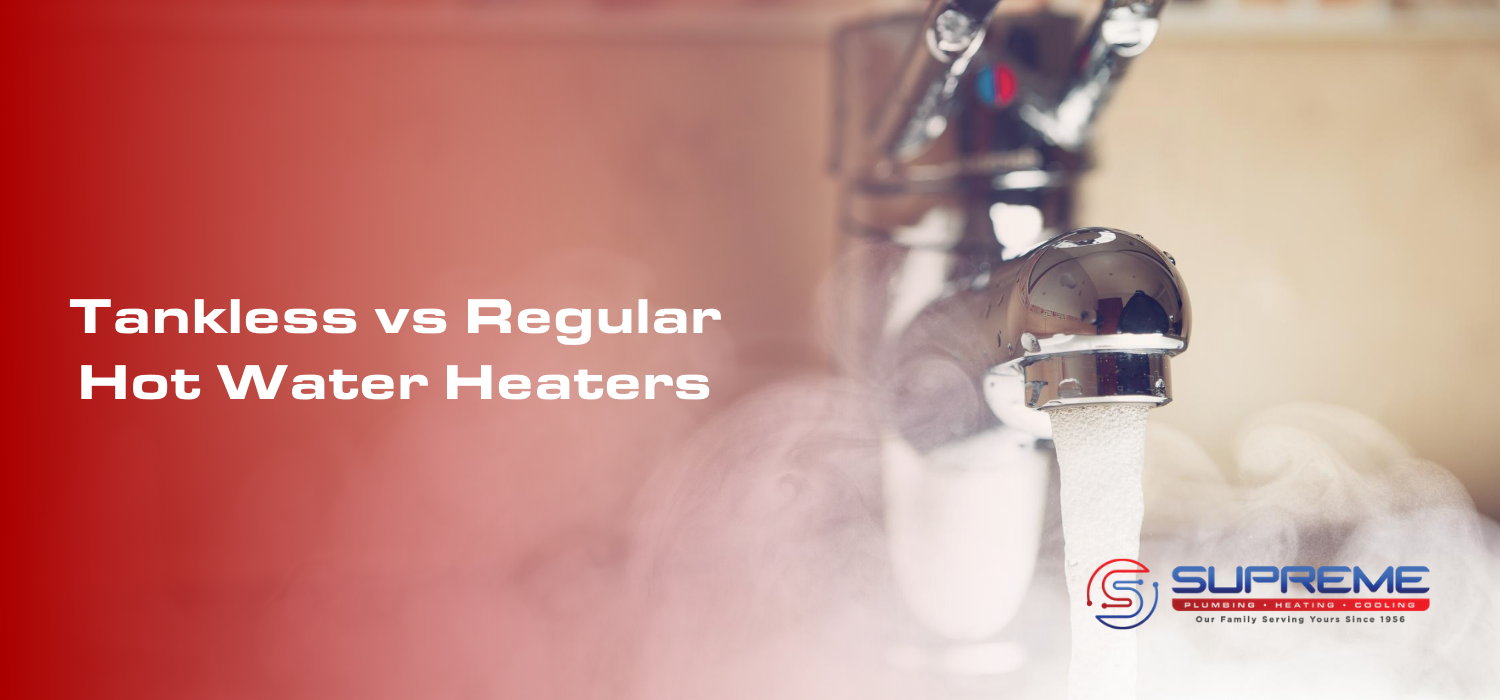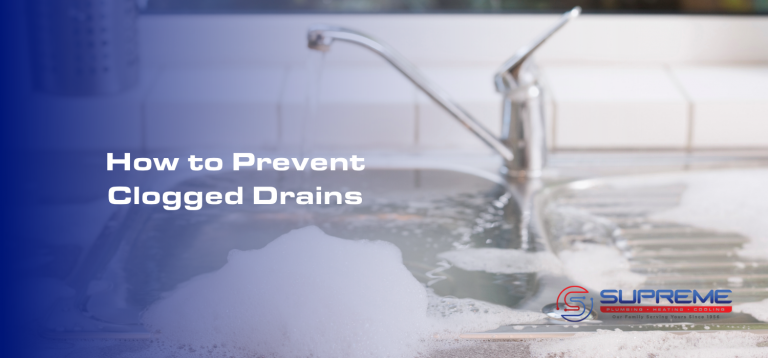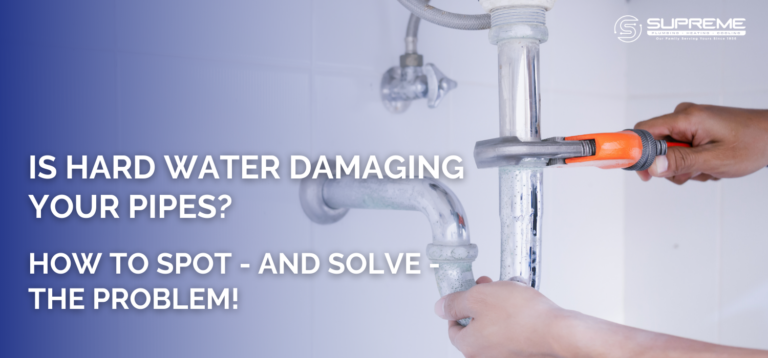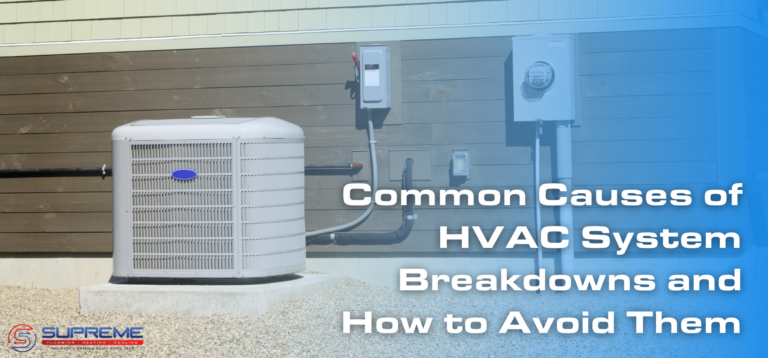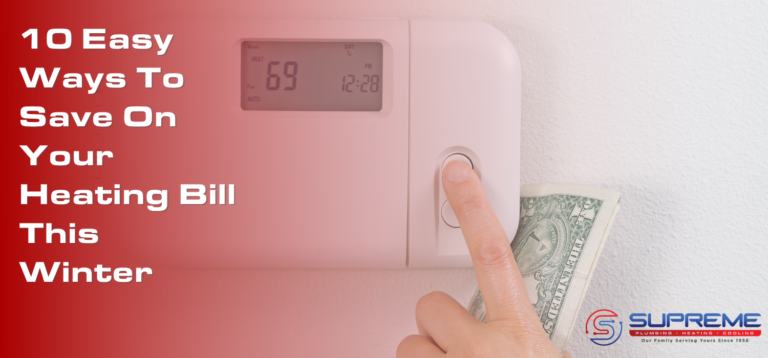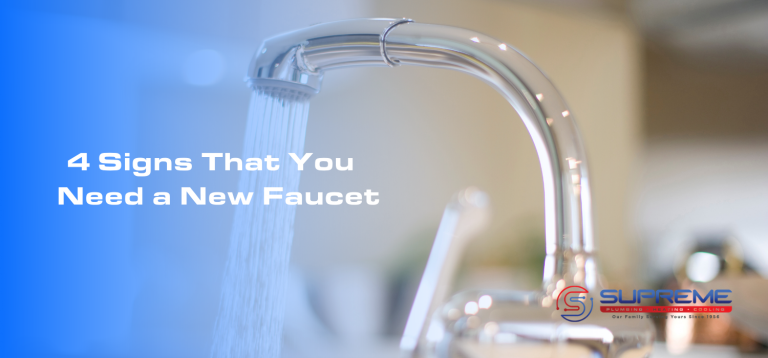We’ve all had the experience of getting into the shower and being blasted with cold water. For many of us, we never really think about where our hot water is coming from—until we run out of it.
Hot water heaters can have a huge impact on our daily routines and wallets. Replacing and maintaining a water heater is an investment, so it’s important that you are choosing one that fits the needs of you and your family the best.
The two most common water heater options are tankless and regular hot water heaters. But how are you supposed to know which one to pick? Both offer different benefits and drawbacks when it comes to cost, efficiency, and longevity. Here is our breakdown on tankless vs regular hot water heaters so you can make the best choice for your home.
Regular Hot Water Heaters
Regular hot water heaters are commonly found in most homes. These heaters consist of an insulated tank that can typically hold between 30 to 50 gallons of water. The tank continuously heats the water to a predetermined temperature so that you always have hot water ready and waiting for you to use.
Pros
- Affordable initial cost for installation because, more often than not, people are replacing an existing regular water heater so no changes need to be made to the home.
- Simpler operating system makes for lower cost repairs and maintenance to your system which can save you money in the long run.
- Immediately have hot water because the tanks allow for a hot water supply to be stored while not in use. You won’t have to wait long for hot water to reach the taps.
Cons
- Higher average utility bill because the tank is constantly reheating the water to maintain it at the pre-set temperature.
- Causes more strain on your system due to constant energy use, especially during the colder seasons where it has to work harder to heat.
- Shorter lifespan than tankless heaters, only lasting approximately 10 years before needing to be replaced.
Tankless Hot Water Heaters
Unlike regular hot water heaters, tankless or on-demand heaters, do not store water ready to use. Instead, it only heats the water when you are about to use it. Once you turn on the water, it gets heated by high-powered burners as it passes through a heat exchanger before being delivered.
Pros
- Significantly more efficient because it only uses energy to heat the water when you are about to use it. This can help to save you money on your monthly electric or gas bills.
- Longer lifespan, lasting approximately 20 to 30 years if maintained well. On average, this is double the lifespan of regular hot water heaters.
- Ideal for smaller homes because it does not require a tank, therefore taking up less space.
Cons
- Higher initial cost for installation due to having a more complex system that requires more changes to the home.
- Requires more regular maintenance because they have a tendency to clog your system due to congregating minerals, especially in hard water.
- May fail to keep up with demand when doing things that require hot water simultaneously such as doing laundry and showering unless properly sized for the load in your home.
Trying to Decide Which Type of Hot Water Heater is Best for Your Home?
If you need to replace or maintain your hot water heater, you can check out the variety of water heater brands we offer and contact us today to schedule an appointment with our professional plumbing technicians. We’re happy to answer any questions you have and provide maintenance for any existing water heater you may have at home.

